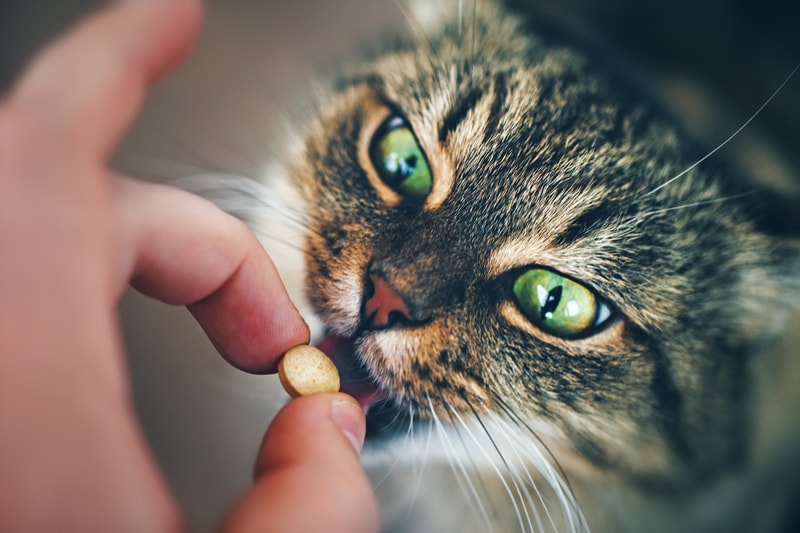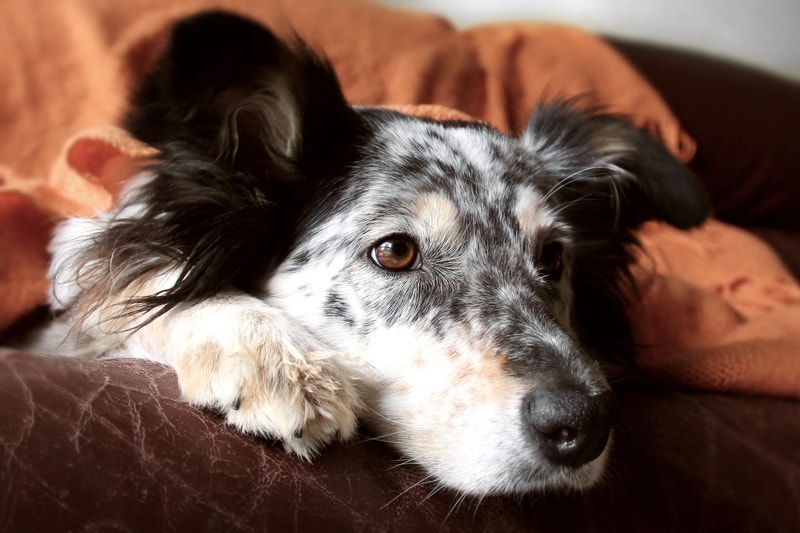Cat Epilepsy: Signs, Triggers, and Life Expectancy
Epilepsy is used to describe repeated seizures, which are caused by abnormal brain activity.
As pet parents, it's terrifying to think of our four-legged family members ingesting something poisonous. You may be tempted to push that thought right out of your mind. However, we all know that our curious kitties and playful pooches have a way of getting into stuff they shouldn't.
Learning everything you can about potentially life-threatening foods, plants, and other substances is one of the smartest and most loving things you can do for your pal.
In the best-case scenario, you will witness what your dog or cat ingests so that you can act quickly and give your veterinarian as much detail as possible. Unfortunately, that isn't always the case. Here are some symptoms common to both dogs and cats that could be an indication of poisoning:
Poisoning can even lead to death, so if you have any suspicion that your pal is in trouble, contact your veterinarian or an emergency veterinarian clinic immediately.
Some of the primary offenders you should keep away from pets are everyday items and food. Read on to learn more.

Our dogs and cats love stealing tasty morsels from our tables, but people food doesn't always make good pet food. Most pet parents know that chocolate and certain types of peanut butter can be dangerous to dogs, but there are actually a lot of foods that you should keep away from your li'l buddies. The following should be off-limits for pooches and kitties:
Dairy products can also be bad for pets so you may want to avoid giving your kitty that saucer of milk. It can cause tummy upset and more severe symptoms if they are allergic or lactose intolerant.

Our furry friends love nibbling on fresh greens. There are a lot of plants and flowers that can cause tummy upset, but unfortunately, there are also many that are classified as toxic. These can cause a range of problems, from vomiting and blood pressure changes to convulsions, coma, and even death.
This is in no way an exhaustive list, but here are some plants that are toxic to both dogs and cats:
True Lilies from the Lilium species, including the Tiger and Easter, are also highly toxic to cats. Some Lilies are not as dangerous, such as the Calla, Peach, and Peruvian Lily, which only tend to cause minor issues like mouth irritation if they're nibbled on.

It's kind of a no-brainer that harsh cleaning products like bleach are poisonous to pets. If you use a diluted solution and rinse and air out very thoroughly, you can still clean your pal's crate or toys with bleach. Just make sure to store the bottle in a closed cupboard and out of reach.
Carpet fresheners, carpet shampoos, and air fresheners can also be safe if you follow the directions and keep your pet away from fresh applications. Some products to definitely lock up are:
Essential oils have been a hot topic when it comes to pet safety. They've been gaining popularity as a way to treat ailments in people from congestion to sore muscles. While they can be dangerous to pets, particularly cats, you don't have to toss out your essential oil diffuser yet.
These oils are dangerous to pets in their most concentrated form (100%), and some oils may be more harmful than others. However, you can use a diffuser for short periods of time if your pet doesn't have respiratory issues. Keep it somewhere it can't get knocked over potentially exposing your pet to the oils. And, of course, store essential oils out of pet's reach.

There are a lot of human medications that can harm your dog or cat, who could easily ingest a loose pill if you drop it on the floor. Some of the most common include:
A lot of your personal care products can also make your dog or cat feel sick - or worse - if ingested. Take extra care to keep your face wash, soap, lotion, petroleum jelly, topical creams, mosquito repellents, and other cosmetic items out of paw's reach.

Even the most diligent pet parents and the most well-behaved pets can find themselves in a scary, poison-related emergency. If your pal is in trouble, don't beat yourself up about it. Just stay calm, and remember these tips:
Are you prepared? Learn more about dog CPR and what to include in a pet first-aid kit.
Poisoning isn't something you can plan for. But you can prepare for the treatment and associated costs by getting coverage for your furry friend… before disaster strikes. Whether it's an emergency visit or a routine check-up, an ASPCA Pet Health Insurance plan helps you provide the care they need without breaking the bank.
Is your pal covered? Get a personalized quote!
(opens new window)